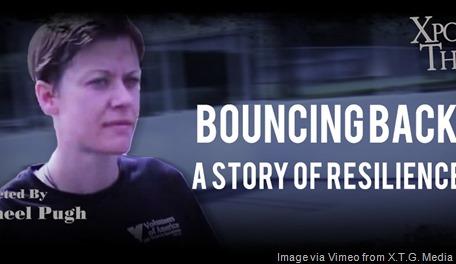 If you haven’t had a setback in business, you are probably risk averse and doomed to mediocrity. The business leaders who create real technology paradigm shifts, or have changed the world of commerce, don’t advertise their failures, but they still feel them. Yet they have been able to learn from their mistakes and bounce back stronger for the next challenge. They show resilience.
If you haven’t had a setback in business, you are probably risk averse and doomed to mediocrity. The business leaders who create real technology paradigm shifts, or have changed the world of commerce, don’t advertise their failures, but they still feel them. Yet they have been able to learn from their mistakes and bounce back stronger for the next challenge. They show resilience.
Ask Bill Gates and Microsoft co-founder Paul Allen about their first business, Traf-O-Data. They tried to make traffic signals intelligent way back in the early ‘70s, but found out that it takes more than technology to change government bureaucracies. They bounced back by creating Microsoft, and embracing marketing to change businesses and consumer use of computers.
More recently, most people think of Mark Zuckerberg as the creator of social media, but few remember his earlier efforts at creating video games, a music player, and Facemash, the last being his idea of a great dating app. But he never gave up, pivoted his efforts to social media, renamed it to Facebook, and struggled for five more years before generating a positive cash flow.
As an advisor to entrepreneurs, I often preach the need for resilience, but I’m not sure how to recognize it before-hand. I’m also not sure what to tell aspiring entrepreneurs to practice or learn, to improve their ability with this attribute. Based on my own experience, here are seven key elements of resilience that I look for:
-
A willingness to accept responsibility for whatever happens. People who look for someone or some external event to blame for every setback are not likely to be resilient. It’s always easy to blame the economy, investors, or the team for a failure, but blame doesn’t lead to learning. I look for people who see problems as opportunities, rather than setbacks.
-
Surrounding yourself with people who are positive and supportive. Team members who are always negative and making excuses for lack of support drag down any business, as well as your own resilience. The best business partners have strengths that complement yours, and they are smarter than you in their domain. They bring you solutions, not just problems.
-
You look at failures as milestones on the road to success. Thomas Edison was the classic example, when he characterized his 10,000 failures to find a working lightbulb filament as experiments to identify all the ways that won’t work. Resilient business people are energized by the learning opportunity, rather than discouraged by every setback.
-
Demonstrated self-confidence, but not arrogance. I look for the pragmatic self-confidence that any setback is temporary and can be overcome, rather than a fear of failure or fear of taking a risk or making a decision. Too much ego often causes a blind high self-worth view that most call arrogance. Resilience requires humility, in concert with perseverance.
-
Not reluctant to ask for help, feedback, and support. Resilient entrepreneurs know what they don’t know, and are not afraid to reach out for guidance from their team, close advisors, and industry experts. I always recommend that a startup founder enlist an advisory board of three to five members, and I find that people who resist this help are not very resilient.
-
Embrace the need to constantly innovate and change. If your agenda is so fixed in your head that you are not listening to the winds of change in the market, resilience is not yet your strong suit. The best entrepreneurs know they don’t have all the answers, and today’s answers may be wrong tomorrow. Change is the only constant in today’s world of business.
-
Demonstrate a priority on their own health and family balance. You won’t be resilient if you ignore your own health, both physically and mentally. Every entrepreneur needs to allocate some time away from business for exercise, sleep, and healthy eating. Mentally, you need outside activities and events keep you balanced and aware of the real world.
According to a recent article in the Harvard Business Review, resilience in business is just as often needed for dealing with difficult business partners, customers, and office politics, as well as in dealing with business setbacks and failures. All the more reason to focus on the right attributes and habits as you contemplate stepping into your own business.
Thus, if your dream is to be the next Mark Zuckerberg or Bill Gates, remember that a large dose of resilience will be required by you, and everyone around you. There is no room for excuses, a pity party, or a sense of luck running against you. Are you ready to enjoy the challenge of the journey, as well as the success of reaching the destination?

